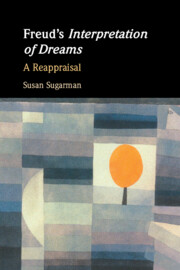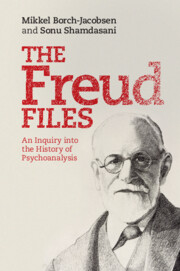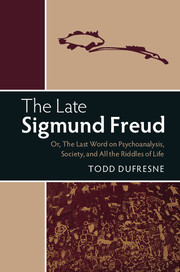Freud's Thinking
In this brief but comprehensive introduction to Freud's theories, Mikkel Borch-Jacobsen provides a step-by-step overview of his ideas regarding the unconscious, the cure, sexuality, drives, and culture, highlighting their indebtedness to contemporary neurophysiological and biological assumptions. The picture of Freud that emerges is very different from that of the fact-finding scientist he claimed to be. Bold conceptual innovations – repression, infantile sexuality, the Oedipus complex, narcissism, the death drive – were not discoveries made by Freud, but speculative constructs placed on clinical material to satisfy the requirements of the general theory of the mind and culture that he was building. Freud's Thinking provides a final accounting of this mirage of the mind that was psychoanalysis.
- Introduces Freud's theory step by step using ordinary-language arguments throughout, making it accessible to readers without specialized training
- Uses a history of ideas approach that places Freud's psychoanalysis in the larger context of then-current scientific theories
- Allows the reader to understand that Freud's conceptual innovations were not, as he claimed, fact-based but theory-driven
Reviews & endorsements
‘This volume will interest students and scholars of psychoanalysis as well as historians of thought. Recommended.’ R. H. Balsam, CHOICE
Product details
October 2023Hardback
9781009371131
220 pages
235 × 158 × 16 mm
0.42kg
Available
Table of Contents
- Introduction
- 1. The unconscious
- 2. The analytic cure
- 3. Sexuality
- 4. Drives
- 5. Culture
- Conclusion.





